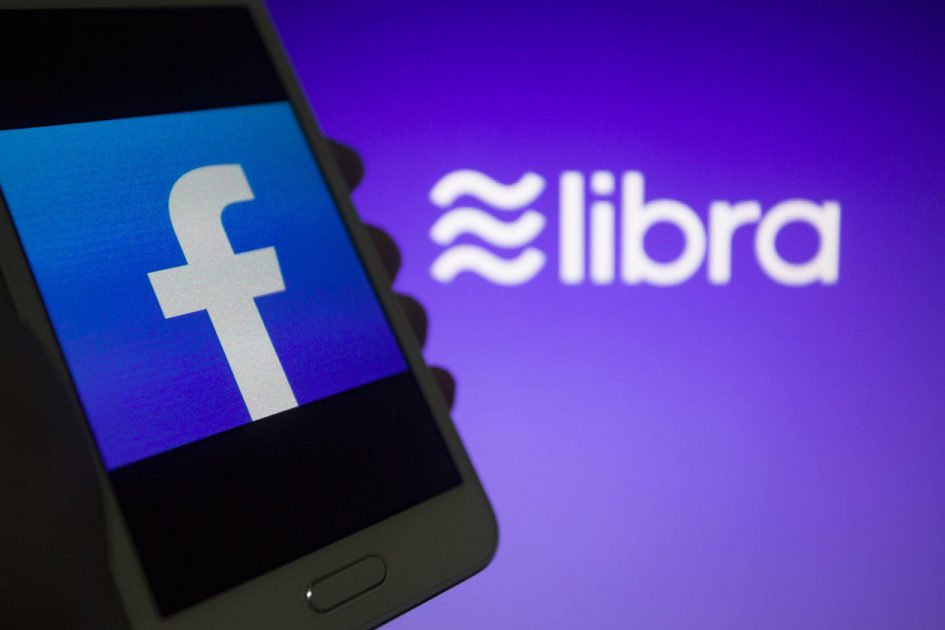Last week, Facebook has finally revealed the details about its cryptocurrency project –Libra. As some of you may know, Mark Zuckerberg wants to go beyond mere social networking services, reaching into the “banking area.”
That digital currency is based on a customized prototype of blockchain -implemented by open-source software under Apache license and written in Move programming language, which runs in ES3 or higher JavaScript runtimes.
It also adopts the Byzantine Fault Tolerant (BFT) consensus approach, designed to provide “some kind of support” when validation nodes undergo failures during transactions. Besides, contrary to common blockchain technologies, it replaces “transaction blocks” by a “single data structure”.
Theoretically privacy would be respected provided that users may hold many addressed that do not have to match with their physical and real identities. However libertarians and free-marketers do not have really too much to celebrate with Libra.
Big Government Allies Are Endorsing Libra
Libra is not going to be totally managed by Facebook, but by Libra Association. It is really such a committee of Big Tech. Their founding members are not just “decentralized-money-lovers” but some of the most important world’s biggest companies.
Among those companies we may find Facebook -through a subsidiary named Calibra, Uber Technologies, Spotify, eBay, MercadoPago, Vodafone Group, Mastercard, PayPal and Visa as well as progressive and left-wing associations as Women’s World Banking.
It might not be something to worry about, but many big companies are on good terms with big government. Financing is one of the main clues. For example, PayPal CEO Elon Musk got a $7,500 income tax credit from the federal government whereas Facebook got a $333M tax break.
Furthermore, according to Stewardship Properties partner Andrew Syrios:
[…] The brilliant thing about a free market is that if Lowes doesn’t want my business, I can just go to Home Depot. But while Google, Facebook, Amazon and Apple are ostensibly private companies, they are deeply entrenched with the government. Over and over again we’ve seen them aid the enforcement of thought crimes in Europe (like arresting people for mean tweets) and Google capitulated to the Chinese government to censor their search results in China. […]
Big Tech Push For Stronger Regulation
Leaving aside political benefits related to financing as in the fact of lobbying, Big Tech and Big Government are a case of crony capitalism, defined by the economical writer Hunter Lewis as,
[…] the economic system embedded in tribalism and as such has been the dominant system for all of human history. Through the ages, powerful cronies latch onto political and economic philosophies and distort them in the process, but this is just window dressing. […]
Apart from that, it should be noted that they do not only collaborate with cultural Marxist censors—when it comes to euroscepticism, support to Donald Trump, pro-life messages, criticism of Islam…—but also push for regulations.
When it comes to Facebook, we should recall that last Autumn they called for government regulation over social networks. According to him it is something required to address “harmful content”, “election integrity”, “privacy” and “data portability” affairs.
It also mobilized against “net neutrality” withdrawal by US FCC. Even in name of “free-speech-defenders”, they opposed to what really ended with the limits over ISPs at the time of offering different speed connections and prices, regardless the kind of content to get/post.
Blockchain Defies Big Government
Blockchain relies on a pro-decentralization philosophy. There is no central management—not by government, not by a single private company. It is a decentralized-distributed network based on transactions that are validated from users based in different points around the globe.
It is a threat for central banks as the ECB and the FED, provided that politicians aren’t able to alter the value of currencies against market spontaneous order. Besides it helps to get rid of centralization. Agreeing with Patrick M. Byrne:
[…] The key to overcoming the problems in these central institutions is the block chain. Because, with the block chain, for the first time, we no longer need these central institutions for settlement, or for guaranteeing the value of coins, or for land titling. All of these functions can be replaced by a transparent public ledger that is safe from tampering, and which can make value and ownership clear and open for everyone. This is information that is decentralized, and is not controlled by any central organization. We don’t need central institutions to control or protect this information anymore. Using the block chain, we can disrupt all these systems — and much more, too — and the institutions behind them. In turn, this spreads decision-making and the use of knowledge to a much larger number of people and institutions. The advantages of decentralization that are already being employed in private companies can then be felt society-wide. […]
Bitcoin Did Not Attracted Big Tech
The famous cryptocurrency Bitcoin was not so interesting for companies like Mastercard, PayPal, Amazon and Spotify. It is not as integrated with the transactions we make through those platforms as euro, pounds and dollars. However they was not interested in different alternatives.
Those big companies seem to rely only on fiat money. So the big interest in Facebook’s cryptocurrency is a big reason to mistrust Libra as an opportunity to keep the government out of your assets and financial goods surveillance.
I endorse money decentralization by the extent I struggle for entrepreneurship. Government should not monitor our transactions -our private property is a moral and essential right. So I have no reasons to rely in exchange means born in crony capitalist environments.
 The Libertarian Catholic
The Libertarian Catholic
















